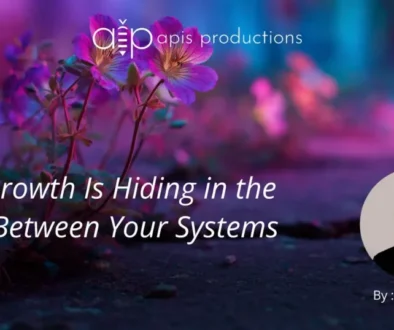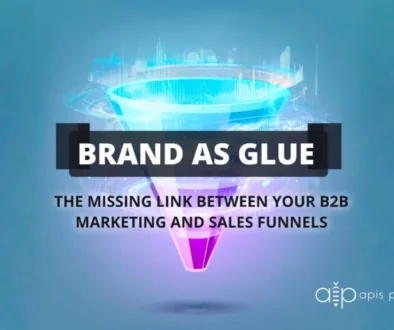Hashtags & Facebook (Plus Proper Use of Tagging & @Mentioning)
Use of Hashtags with Facebook
Most people don’t use hashtags with Facebook because they aren’t as useful as Twitter, LinkedIn or Instagram. I believe they are making a comeback.
Businesses can benefit from using hashtags with Facebook in subtle ways. What if your company has one person specifically searching for what your business offers and you gained an extra fan, lead or sale from that? It would be worth that extra step, wouldn’t it?
A Few Quick Tips for using #Hashtags with Facebook:
1. Use relevant keywords to your business and the audience you are trying to target. (If you are a local business, use the name of your city, too).
2. Use tools like Hashtagify.me to find other trending hashtags related to your specific tag.
3. Don’t put your #hashtag in the middle of the #sentence. That makes #reading the sentence #annoying. Instead, write out your whole post; at the bottom of the post, add the hashtags.
4. Use only 2 hashtags at a time.
Tagging People or Companies with Facebook
While there is no such thing as hard and fast rules for social media, and guidelines keep changing as the platforms and their features evolve, there are still some essential accepted guidelines for tagging on Facebook that every business owner should know.
Let’s start by defining what tagging is. When you ‘tag’ someone, you are creating a link to their profile. It is different from simply “@mentioning” someone by name because with a tag: (1) you can click on the name and go to their profile, (2) your post may be added to the person’s timeline (depending on their settings), and (3) your post becomes visible to the friends of the tagged person.
You can tag in posts, status updates, pictures, videos, links, and comments. You can tag your ‘friends’ on Facebook, as well as people in your groups. And besides tagging people, you can also tag certain pages, events, and apps.
Tagging is simply done by typing someone’s name in the status or comment box and selecting the right name from the drop-down menu that shows up:

Facebook Tagging has many great uses for business when used properly. You can tag your team in the photos to showcase them. You can tag partners in a post when you are promoting them. You can tag a colleague to bring them into an ongoing conversation as an expert. You can tag event participants in the photos from the event. You can tag people or pages in acknowledgment when you are sharing their content. Or you can tag to give credit to someone for their ideas, help, or support.
There are endless positive and appropriate reasons to tag, but you will notice that they all have one thing in common—there is a very apparent reason behind the tag.
The downside of the tagging feature is that you cannot prevent being tagged on Facebook. You can choose to review tags before they appear on your timeline, you can hide the posts you were tagged in from your timeline, or you can remove the tags (but not your name) from posts. But there is nothing you can do to block people from tagging you in the first place beside unfriending or blocking them.
Let’s take a moment to review some of the inappropriate tagging behaviors that will make you appear ‘spammy’:
1. Do not tag motivational quotes or similar posts with multiple random people.
Yes, it’s a fact—by tagging 50 people in your photo, you are hugely increasing the reach of your post because it becomes “visible” to all of the friends of people that you tagged. You should never use this method to increase your Facebook reach. For example, doing it once a year to wish a “Happy New Year” to all of your clients is okay. But if you are doing it on a regular basis with a sole purpose of getting more views on your posts, stop it immediately! It’s a classic spammer technique that you don’t want to be known for.
2. Do not tag people or pages to imply endorsement.
Tagging should not be used to solely promote yourself, your business, or your services. Do not tag people who have a higher reach or more influence simply to get more attention to your promo. This kind of tagging essentially puts an advertising link on a person’s timeline for your product. Being tagged in a pitch without permission and without any sales or affiliate relationship creates a false endorsement and violates basic principles of doing business.
3. Do not tag people to get their attention to your offer.
Whether it’s a new program, book, class, or something else you are trying to promote, do not tag people to attract their attention to it. I see it all the time—business owners uploading a picture of a flyer advertising their upcoming event, webinar, or program and tagging every other business owner they know to invite them. This kind of tag is usually done without any ill intent, but in essence, it’s a variation of rule #2 discussed above. People don’t like being associated with an event or an offer without a prior conversation, and tagging them does just that.
Instead, you can send a private message, you can send an email with the link to your post, you can create a Facebook event and invite people to it, or you can even mention someone’s name in the comment under your post. It’s all much better than tagging people directly in the post.
The rule-of-thumb is: If your post is self-promotional, there is usually no reason to tag other people in it unless they are part of your event or your team.
Quite simply, think before you tag. If you don’t, you can quickly lose not only the trust of your Facebook friends but also loads of followers and fans.
Use of @Mentions with Facebook
It’s okay to “@Mention” other Facebook pages in posts to be shared to a Facebook page. To mention a Facebook page in your post, type in the @ symbol and start typing the first few letters of the Facebook page you’d like to mention. Matching results will be returned and you can click on the page you’d like to include.
Please note, it is not possible to “@Mention” Facebook Profiles, only Pages. Additionally, it is not possible to “@Mention” Facebook Pages if you’re posting to a Facebook Group.
We, at Apis Productions, will be putting together one more in-depth article about Instagram hashtags. As always, if you need help with your social media management and/or graphics creation for your custom-branded posts, give us a shout! #wearelistening




